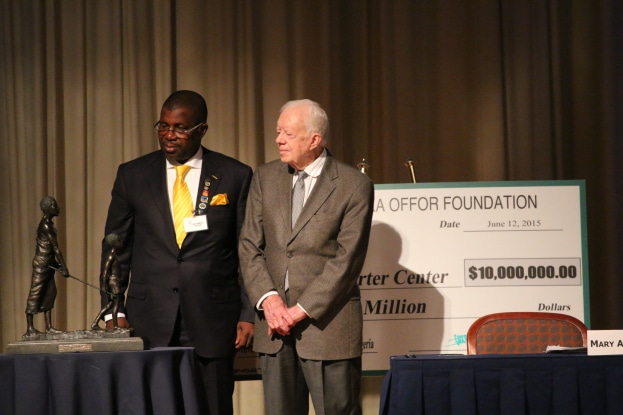NECSA Radiation Protection Learnership Programme 2026 – A Detailed Guide
The NECSA Radiation Protection Learnership Programme 2026 offers an exciting opportunity for young South Africans interested in pursuing a career in radiation protection and nuclear safety. The South African Nuclear Energy Corporation (NECSA) is at the forefront of nuclear research, providing essential services in the nuclear and radiation fields. Through this learnership, NECSA aims to equip future professionals with the necessary skills and hands-on experience to thrive in the nuclear industry.
If you’re passionate about safety, radiation protection, and scientific research, this program could be your stepping stone to a rewarding career in one of South Africa’s most advanced industries.
In this article, we’ll explore everything you need to know about the NECSA Radiation Protection Learnership Programme 2026, including the benefits, eligibility requirements, fields of study, and how to apply.
About NECSA
The South African Nuclear Energy Corporation (NECSA) is the state-owned entity responsible for all nuclear-related activities in South Africa. NECSA plays a pivotal role in providing nuclear energy, radiation protection, and radioactive waste management services, while also conducting research and development in the field of nuclear science and technology.
NECSA operates a number of facilities, including the Pelindaba Nuclear Research Facility, which houses various reactors used for research and producing radioisotopes for medical and industrial purposes.
The organization is not only involved in nuclear power generation but also focuses on safety, ensuring that all activities related to radiation and nuclear technology adhere to the highest safety standards. It is within this environment that NECSA offers opportunities for young individuals to gain specialized training in radiation protection.
NECSA Radiation Protection Learnership Programme 2026: Key Details
The NECSA Radiation Protection Learnership Programme 2026 is designed to provide young South Africans with the essential training and practical experience needed to become radiation protection specialists. This program will offer learners hands-on exposure to various facets of radiation safety, including monitoring, shielding, and risk assessments in environments where radioactive materials are used.
Key Features of the Learnership:
- Duration: The learnership typically lasts 12 months to 24 months, depending on the learner’s performance and the specific training stream.
- Stipend: Participants will receive a monthly stipend to help cover living expenses while they gain practical experience.
- Training: The program combines theoretical coursework with hands-on practical experience in radiation protection, providing learners with the skills necessary to ensure safety in radiation-related environments.
- Certification: Upon successful completion of the program, learners will be awarded a National Certificate or qualification in Radiation Protection or Nuclear Safety.
- Post-Learnership Employment: Outstanding learners may be offered permanent employment at NECSA or gain qualifications that will enable them to pursue careers in other organizations that handle radioactive materials.
Fields of Study and Learning Focus
The NECSA Radiation Protection Learnership Programme focuses on the following core areas within the nuclear and radiation protection industries:
1. Radiation Protection and Safety
- This is the core focus of the learnership, providing learners with the skills to monitor, measure, and control radiation levels in various environments. Trainees will learn how to evaluate radiation risks and implement protective measures to ensure safety in nuclear facilities, medical institutions, and industrial applications.
Skills learned:
- Radiation measurement and monitoring techniques.
- Understanding the use of radiation protection equipment (e.g., dosimeters, lead shielding).
- Implementing safety measures for handling radioactive materials.
- Compliance with national and international safety standards.
2. Nuclear Safety Procedures
- Learners will gain a deep understanding of nuclear safety protocols and regulations, including the development of risk assessments, emergency response plans, and safety audits within nuclear facilities. The emphasis will be on maintaining a safe working environment for both workers and the public.
Skills learned:
- Assessing radiation hazards in nuclear plants.
- Designing and implementing safety protocols for nuclear operations.
- Conducting safety audits and ensuring compliance with regulatory standards.
- Emergency response and contingency planning for radiation-related incidents.
3. Radiological Environmental Protection
- This focus area teaches how to protect the environment from radioactive contamination. Learners will be trained in monitoring and controlling the release of radioactive materials into the environment, as well as ensuring that the surrounding areas are safe for public health.
Skills learned:
- Environmental radiation monitoring.
- Preventing and managing radioactive waste.
- Techniques for ensuring environmental compliance in radiation-sensitive areas.
- Risk assessments and mitigation strategies for radiological contamination.
4. Radiation Dosimetry and Shielding
- This component focuses on understanding and controlling the exposure to ionizing radiation. Learners will gain insight into measuring radiation doses, using dosimeters, and ensuring that effective shielding is in place to protect workers and the environment.
Skills learned:
- Using dosimetry tools to measure radiation levels.
- Understanding the biological effects of radiation exposure.
- Implementing shielding techniques to protect people and equipment from radiation.
Benefits of the NECSA Radiation Protection Learnership Programme
The NECSA Radiation Protection Learnership Programme 2026 offers various benefits, both professionally and personally:
1. Specialized Industry Training
- Learners will receive in-depth training in radiation protection, a highly specialized field that has limited training opportunities. This knowledge will be invaluable in the nuclear industry, medical sectors, and other radiation-sensitive industries.
2. National Certification
- Upon completing the program, successful learners will be awarded a National Certificate or equivalent qualification, which is recognized within the nuclear industry and radiation protection sectors. This certification can open doors to other job opportunities in various industries globally.
3. Stipend and Financial Support
- During the learnership, participants will receive a monthly stipend to support their living expenses, ensuring they can focus on their training without financial worries.
4. Exposure to Leading Nuclear Facilities
- Learners will gain hands-on experience at NECSA’s world-class nuclear research facilities, working alongside experts in the field of nuclear safety and radiation protection.
5. Career Advancement
- Upon successful completion of the program, learners may have the opportunity to be employed by NECSA or other organizations that require radiation safety specialists. The skills learned are transferable to other sectors, including medical radiation, energy production, and environmental safety.
6. Industry Networking
- Participants will be able to network with professionals in the nuclear energy and radiation protection industries, opening up potential job opportunities and professional relationships in the future.
Eligibility Criteria
To apply for the NECSA Radiation Protection Learnership Programme 2026, candidates must meet the following criteria:
1. South African Citizenship
- Applicants must be South African citizens with a valid South African ID.
2. Educational Requirements
- A minimum of Grade 12 (Matric) with Mathematics and Physical Science. Alternatively, candidates with a National Diploma or degree in Physics, Radiation Protection, Nuclear Science, or a related field will also be considered.
3. Age Limit
- Applicants should be between the ages of 18 and 35 years at the time of application.
4. Health and Physical Fitness
- Candidates should be in good physical health, as radiation protection roles may require working in specialized environments with safety protocols.
5. Personal Attributes
- Strong attention to detail, problem-solving abilities, and an interest in scientific work and safety.
- Ability to work well within a team and to handle sensitive information responsibly.
How to Apply for the NECSA Radiation Protection Learnership Programme 2026
1. Visit the Official NECSA Careers Page
- Stay updated on the application period by regularly checking the official NECSA website or other job portals such as PNet and Indeed.
2. Prepare Your Application Documents
- CV with personal details, educational qualifications, and any relevant work experience.
- A cover letter expressing your interest in radiation protection and why you are suited for the learnership.
- Certified copies of your Matric certificate, ID, and any academic qualifications or National Diplomas in related fields.
3. Submit Your Application
- Follow the application instructions provided on the NECSA website or job portals. Ensure all documents are submitted by the application deadline.
4. Interviews and Assessment
- Shortlisted candidates will be invited to attend interviews and skills assessments to determine their suitability for the program.
5. Feedback
- Successful applicants will be notified and provided with further details regarding the start date and other essential information.
The NECSA Radiation Protection Learnership Programme 2026 is a unique opportunity for individuals interested in working in the nuclear energy and **
radiation safety** sectors. By joining this programme, learners will gain invaluable skills and qualifications that will prepare them for a fulfilling and rewarding career in a rapidly evolving field.
If you’re ready to embark on a career path that focuses on safety, innovation, and scientific development, the NECSA Radiation Protection Learnership Programme might be the perfect stepping stone for you.
Click here to apply for the NECSA Radiation Protection Learnership Programme 2026.




